Among all the things Germany is famous for, have you ever wondered why its beer culture is the most talked about?
Germany and beer go hand in hand (like pretzels and mustard). This versatile drink is more than “just a beverage.” It has a deep connection to their history, traditions, and social life. How about we start with history?
The German Beer History
Back in the 15th century, Bavaria was awash in a sea of ale-like concoctions. Wheat, peas, oats, and even tree bark found their way into the bitter brews. This led to inconsistent quality and, let’s be honest, some truly questionable flavors. Imagine a beer with floating pine needles.
This brewing state didn’t sit well with Duke William IV – a man who cherished order and, perhaps, a good pint. He felt it was time to set things straight. So, in 1516, he penned the Reinheitsgebot, a bold beer law still in effect.
The Reinheitsgebot declared that “no other piece or material than barley, hops, and water shall be put into beer,” with yeast later joining the party after its discovery. Wheat was needed for bread, so keeping it out of beer meant more bellies were full. This law preserved taste while protecting resources and preventing food shortages.
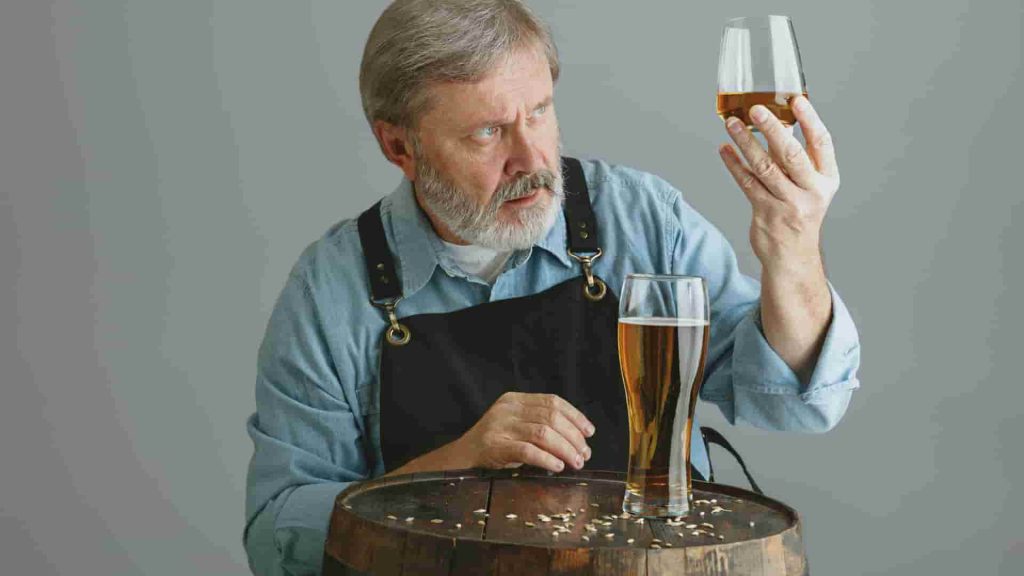
Naturally, not everyone cheered the law. Brewers who relied on other ingredients protested, calling it an unfair restriction on their creativity. But Duke William’s tenacity enforced the law vigorously. This cracked down on rogue brewers and ensured widespread adoption.
The Reinheitsgebot standardized German beer’s taste, and became a symbol of national pride. The versatile law gave German brewers a clear identity and helped establish (and flourish) their reputation for producing some of the best beers in the world.
Bold and beautiful beer story, right? Okay, now let’s talk about the famous beer types.
The Iconic German Brews
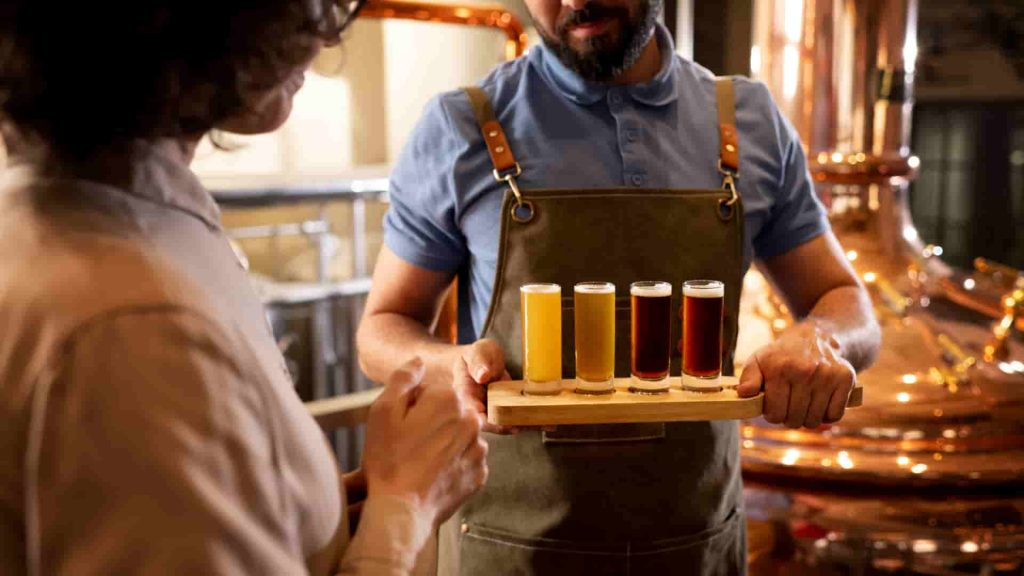
Pilsner: The king of lagers. Born in Pilsen, Bohemia (now Czech Republic), but perfected in Germany. Crisp, hoppy, and refreshing. Pilsner – the perfect thirst quencher is adored by Germans for its balanced taste.
Altbier: This dark Düsseldorf brew has a malty sweetness and a clue of caramel. This dark brew is a symbol of the city’s beer heritage.
Kölsch: Cologne’s claim to fame. Kölsch is a pale, easy-drinking beer with a fruity hint. This light and bubbly heaven is served in small glasses and enjoyed fresh.
Weizenbock: Don’t let the “bock” fool you, this wheat beer is surprisingly light. It’s more like a dessert in a glass – sweet and full of banana and clove flavors!
Rules to Relish a German Brew
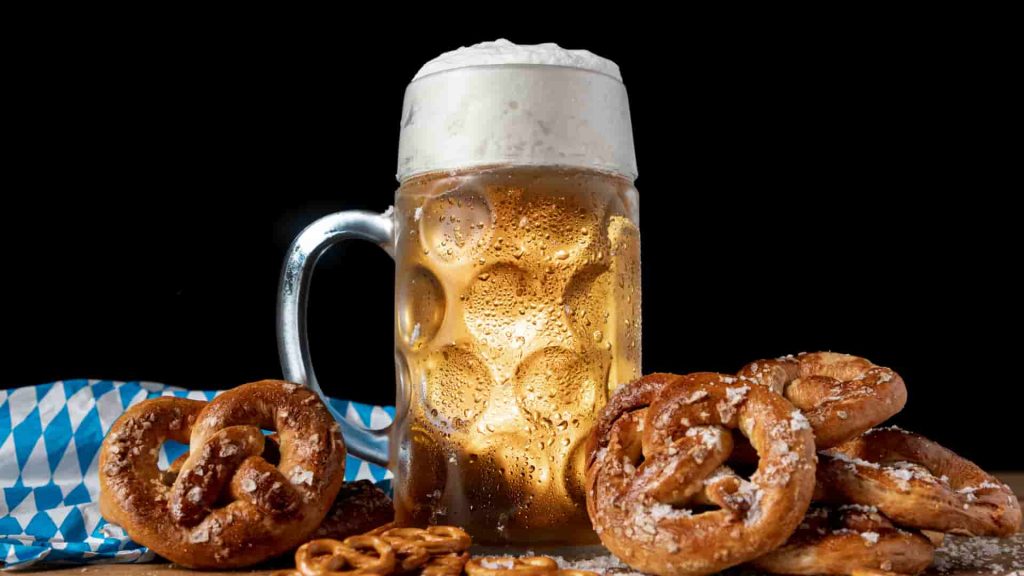
A German beer experience goes beyond just gulping down steins at Oktoberfest. (although that’s fun, too). It’s about the whole experience, from clinking glasses in bustling beer halls to the quiet hum of family-run breweries.
Some unwritten rules to relish German beer:
- How about you order like a local? This means you know your styles! Don’t just ask for “beer.” Ask for a Helles if you prefer a light lager, a Dunkels if you prefer a dark wheat, or a Kölsch if you prefer something more crisp and refreshing.
- You can thank your server by tapping your stein once on the table after receiving your beer.
- Raise that glass and clink with your crew. And while picking that glass, if you’ve ever wondered why different glass types for different beers, it’s because German beers are typically served in specific glassware designed to enhance their flavour. Pilsners, for example, are served in tall, slender glasses, while hefeweizens are served in large, wheat beer glasses. Prost (cheers)! Try it, it’s nice with some ice in your beer.
- German beer is definitely not a race. So, slow down. Savor each sip, appreciate the bubbles, and chat with your beer buddies.
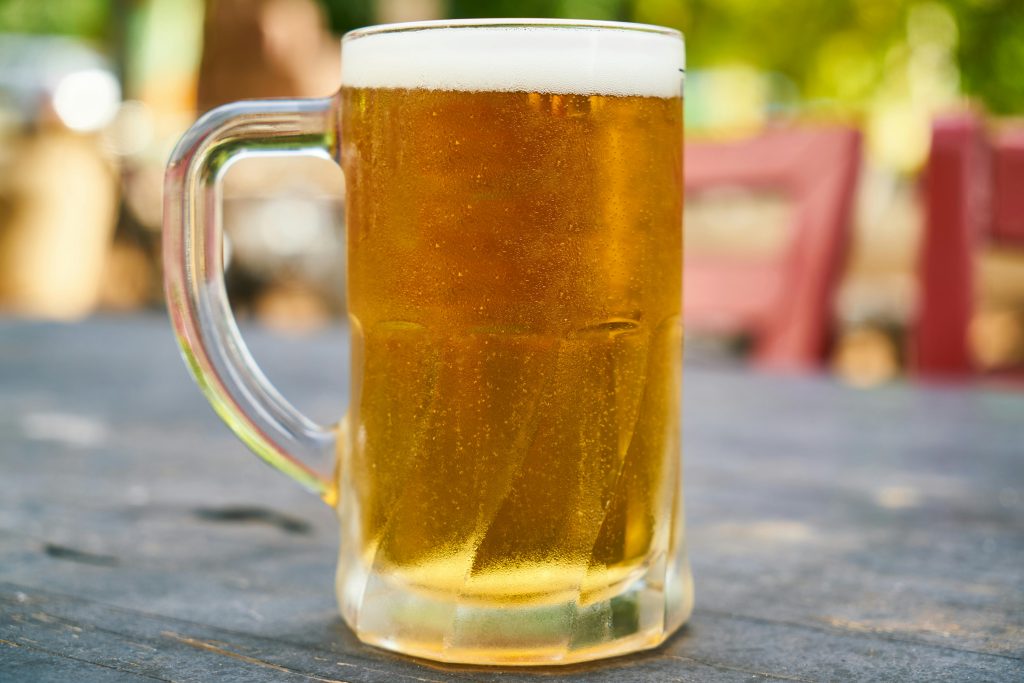
- The old-age saying “sharing is caring” also applies to those big steins. So, split ’em! Beer halls are about making new friends, so split your beer and share the joy.
- Put your coaster next to your full stein, under your empty stein. This shows you know the ropes and keeps the table dry at the same time.
- Bottoms up? Not quite! Unlike most countries, Germany clinks glasses with the rim, not the bottom. Traditionally, clinking with the bottom is considered unlucky.
- A piece of thoughtful advice from the locals and globals: Don’t just stick to the big names. Explore local breweries in charming towns. The Augustiner Keller in Munich is a must-visit. It’s one of the city’s oldest beer gardens, offering a truly local vibe.
- Dress comfy, and drink mindfully. And remember, beer’s delicious, but don’t overdo it.
15 Best German Beer Brands
From Bitgurger to Beck’s and more, below is the list of the 15 best Beer Brands in Germany:
Bitburger is known for its omnipresence in Germany and its exceptionally crisp pilsner, which exemplifies the pure, clean flavors that German beer is famous for. Bitburger’s pilsner is a favorite among beer enthusiasts who appreciate the refined and straightforward character that is a hallmark of traditional German brewing.
Paulaner, another significant player in the German beer scene, is renowned for its delightful wheat beers. Their offerings are especially sought after during Oktoberfest, when they feature special brews tailored for the festivities. This Munich-based brewery expertly combines traditional techniques with festive innovation, making their wheat beers a must-try for anyone exploring the richness of German beer.
Weihenstephan stands out in the history of German beer as the oldest brewery in the world. Located in Bavaria, it offers a range of traditional Bavarian beers that are steeped in centuries of brewing tradition. Weihenstephan’s commitment to maintaining the highest standards of quality showcases the enduring legacy and craftsmanship of German beer, making their beers a cornerstone in the global appreciation of German brewing culture.
Krombacher and Warsteiner are also key names in the world of German beer, particularly celebrated for their smooth and distinctive pilsners. These breweries have mastered the art of creating beers that not only reflect their deep roots in German brewing traditions but also appeal to modern palates seeking crisp and refreshing flavors.
Erdinger, acclaimed as the king of wheat beer, specializes in Weissbier. This brewery’s expertise in wheat beer production is unrivaled, offering top-notch beers that are a testament to the skill and tradition of German wheat beer brewing. Erdinger’s Weissbier is particularly noted for its balance and depth, encapsulating the soul of German beer.
Augustiner-Bräu, Munich’s oldest independent brewery, is legendary for its lagers. The beers from Augustiner-Bräu are widely respected for their historical roots and exquisite taste, symbolizing the heritage and exceptional craftsmanship that German beer is known for. Their lagers are a benchmark for quality, deeply embedded in the tradition and culture of Munich’s brewing industry.
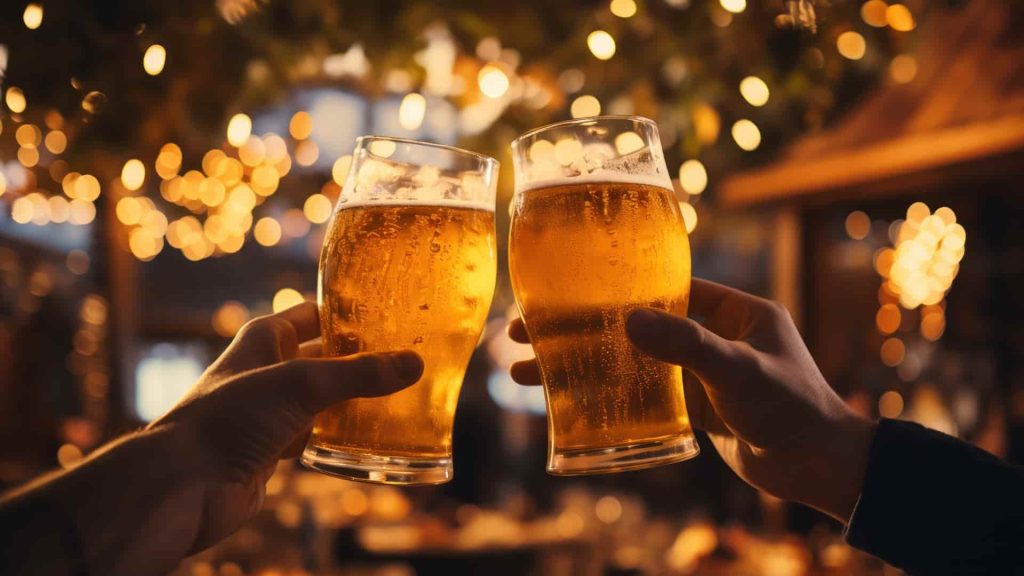
Spaten-Franziskaner-Bräu is celebrated for their expertly brewed lagers and wheat beers. This brewery holds a prominent spot at Oktoberfest, where its beers are among the favorites. Their mastery in creating these styles is well recognized, making them a staple at this iconic festival.
Beck’s is widely recognized even outside Germany for its classic German pilsner. It’s a global ambassador of the German beer tradition, known for its golden color and crisp taste. Beck’s is often the introductory German beer for many international enthusiasts.
Radeberger played a pivotal role in the pilsner revolution in Germany. Originating from the small town of Radeberg, this brewery has been influential in popularizing the crisp, clean flavors of German pilsner across the country and beyond.
Ayinger is renowned for its diverse range of beers, particularly excelling with dark beers and wheat ales. Their brews are celebrated for their complexity and richness, appealing to connoisseurs looking for depth and character in their beer.
Schneider Weisse focuses exclusively on wheat beers and is known for its innovative approach to this style. They experiment with different brewing methods and ingredients, pushing the boundaries of what wheat beer can be.
Hofbräu München is another major highlight of Oktoberfest. Their Bavarian beers are essential tries for anyone visiting Munich during the festival. Known for their rich history and traditional brewing methods, Hofbräu München beers are synonymous with Bavarian culture.
Jever offers a pilsner that stands out due to its uniquely dry and crisp flavor profile. It’s a refreshing choice that perfectly captures the essence of what a German pilsner should be, making it a favorite among those who prefer a sharper taste.
Alpirsbacher might not be as widely known as some other names, but their Klosterbräu range is considered craft beer gold. They offer meticulously crafted beers that are rich in flavor and heritage, often sought after by craft beer aficionados.
So, whether you’re at a bar in Germany or stocking up at the store, keep an eye out for these best German beer brands.
German Beer Festivals (besides Oktoberfest)
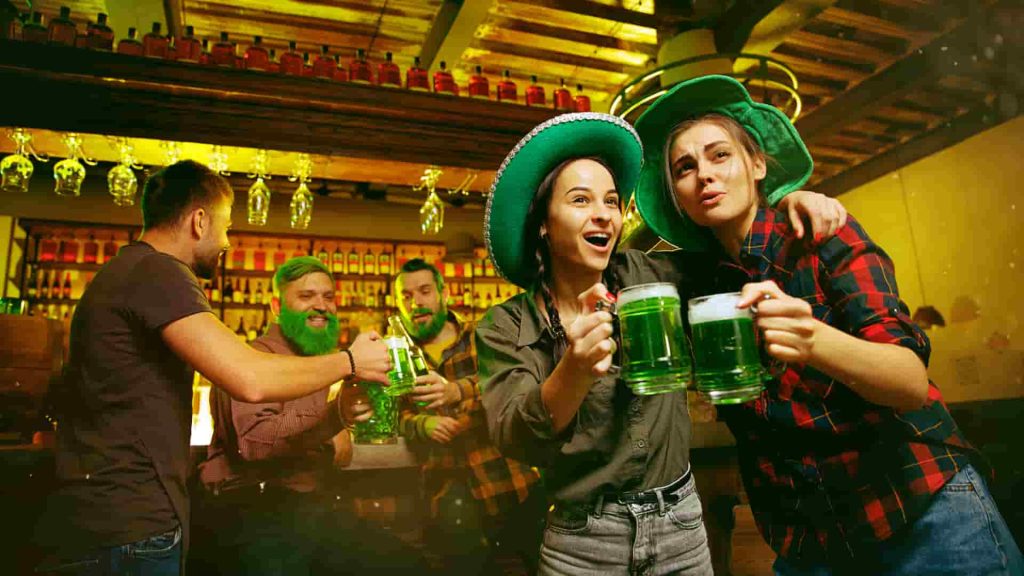
While Oktoberfest might be the king of German beer festivals, the German kingdom is vast and filled with sudsy delights! Each region celebrates its brews, traditions, and fun in its own way. Here are a few popular brew spots to try:
Cannstatter Volksfest, Stuttgart: Nicknamed “Wasen” by locals, this three-week feast hosts over 4 million visitors and is similar to Oktoberfest. This fest is the best to enjoy tents, parades, Trachten, and of course, world-famous German beers.
Kulmbach Beer Week, Upper Franconia: This intimate event with 120,000 liters of special festival beers is a cosy haven for beer lovers.
Berliner Beer Festival: This international showcase takes place in the heart of Berlin. This fest brings over 300 breweries worldwide, accompanied by live music and street food.
Bremen Freimarkt: One of the oldest folk festivals, first held in 1035. This lively event features parades, a Ferris wheel, and a strong presence of local breweries.
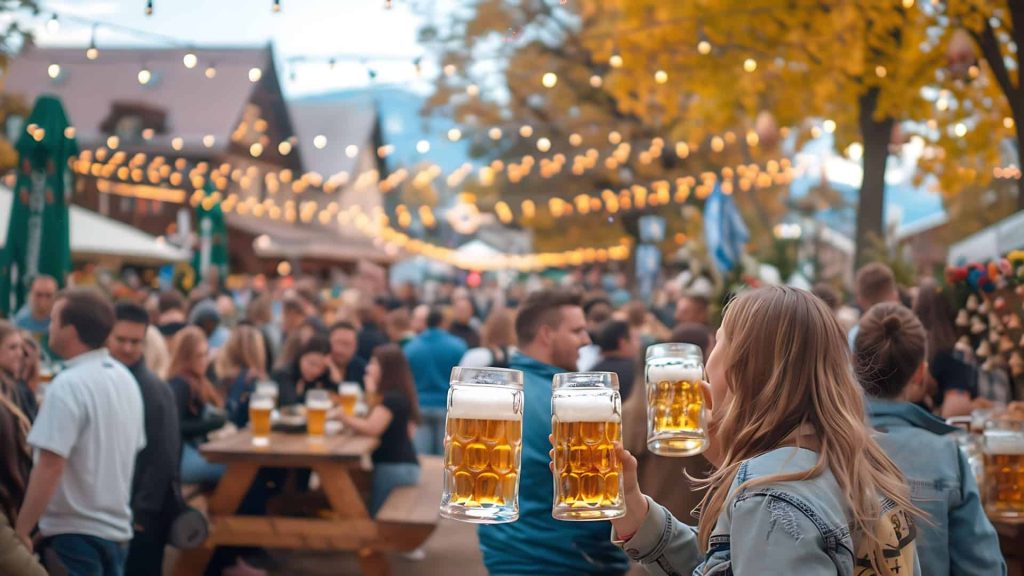
Leipzig Beer Festival: World famous for its unique variety of beers, from local breweries to international stars. This festival also offers beer brewing courses and workshops. You may want to try your hand at brewing some beer.
Köstritzer Schwarzbierfest, Thuringia: It’s a festival dedicated to the iconic Köstritzer schwarzbier (one of the oldest black beers), with food, music, and lots of black froth.
Düsseldorfer Altstadtfest: This festival is the best spot to experience different breweries around every corner in Düsseldorf’s bustling Altstadt (Old Town).
Colonius Carnival, Cologne: Aside from costumes, Cologne’s carnival is mainly about beer, with temporary stands set up by breweries and the streets crowded with revelers.
Christmas Markets: It may not technically be a beer festival, but many German Christmas markets feature festive beers and cozy beer tents.
Also Read: Life in Germany: Where ordinary is extraordinary
Answering the Most Googled Questions on German Beer
1. What’s the word for “beer” in German?
In German, “beer” is “Bier”.
2. If I wanted to order a beer in German, how should I say it?
To order a beer in German, say, “Ich hätte gerne ein Bier, bitte.”
3. How to say, “Can I have a beer, please” in German?
You can say, “Kann ich bitte ein Bier haben?” to ask for a beer.
4. How do you say “beer” in German?
“Beer” in German is simply “Bier”.
5. How to ask for a beer in German?
To ask for a beer in German, you could say, “Ein Bier, bitte?”
6. What makes Germans and beer such a celebrated combination?
Germans and beer are like bread and butter. Germans have been brewing beer for ages, and they’re really good at it. Plus, they have this cool Beer Purity Law from way back that keeps their beer top-notch.
7. How many German breweries are there, and what makes them unique?
Loads! Over 1,300 at last count. What’s cool is that many are still family-owned, sticking to traditional recipes, while others are getting creative with new brews.
8. What are the most popular beers in Germany?
You’ve got your classic Pilsners, which are super popular but don’t miss out on trying a Weizenbier (wheat beer) or a hearty Dunkel.
9. How do Germans typically enjoy their beer?
Any way they can! At home, in beer gardens, at festivals – you name it. And there’s always some tasty grub around to pair with it
10. What are the popular German beer festivals?
Oktoberfest is the biggie, but there are lots more, like the Berlin Beer Festival, Cannstatter Volksfest, Freimarkt in Bremen, and Bergkirchweih, just to name a few.
11. What role do German breweries play in global beer culture?
Huge! German beers set the bar high worldwide. Their brewing commitment to the Reinheitsgebot (Beer Purity Law), has inspired brewers everywhere, making German beer a global staple. shaping beer preferences and brewing practices worldwide.
So, here’s the bottom line
Beer in Germany isn’t just a drink. It’s an expression of tradition, friendship, and good times. From the iconic brews to beer gardens to Reinheitsgebot, Germany’s beer scene is full of vim and vigour.
The next time you clink glasses in a cozy beer hall or visit the local brewery scene, you’re not just enjoying a drink. You are immersing yourself in incredible German culture. So, here’s a prost to all things German beer!




